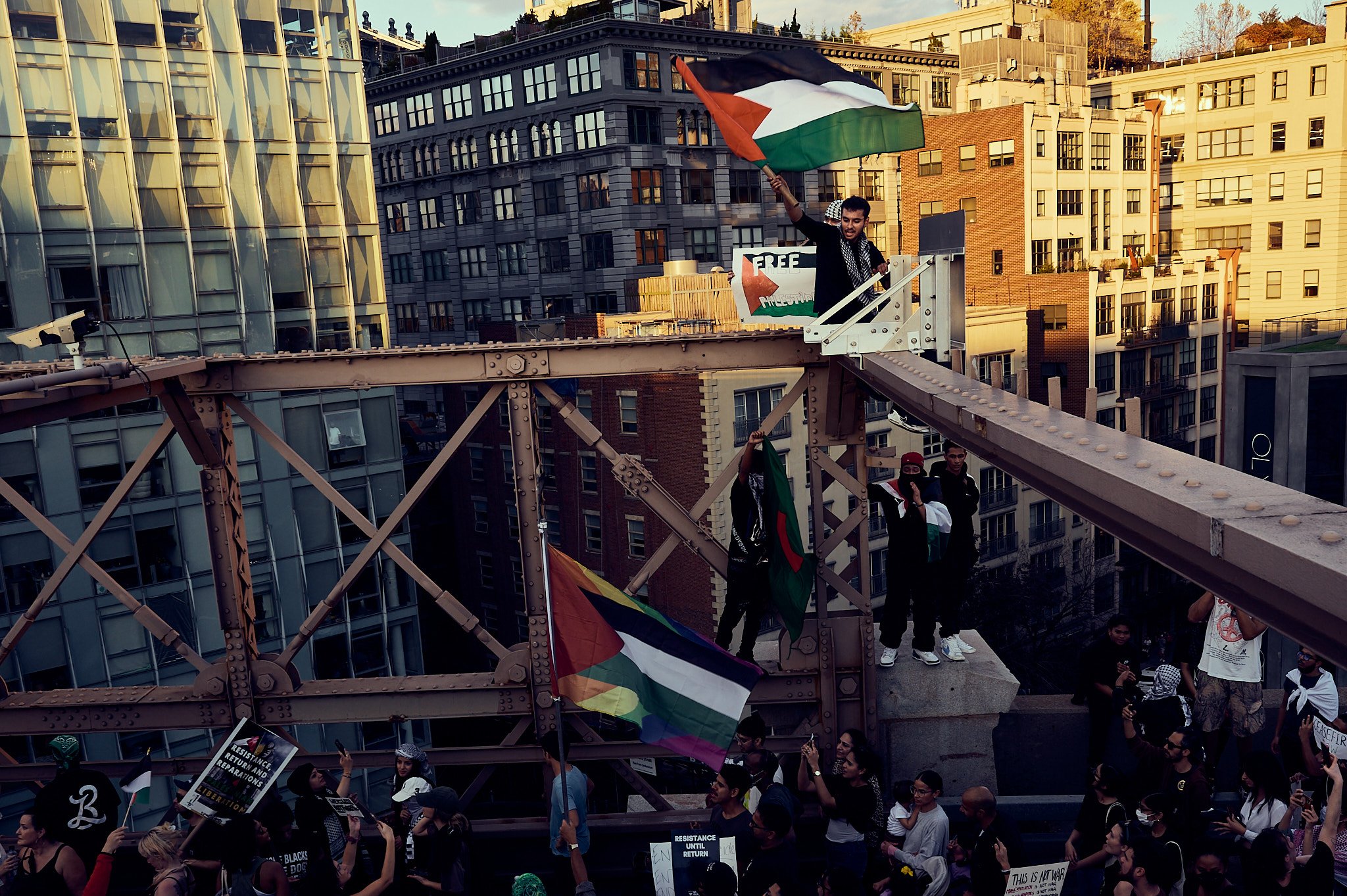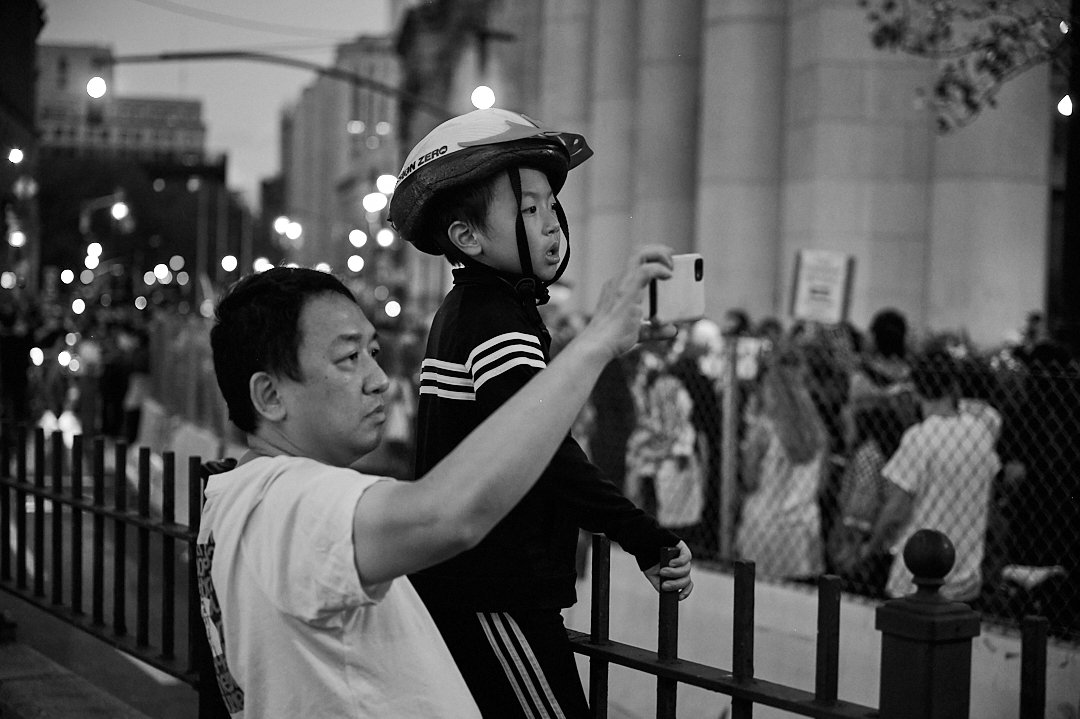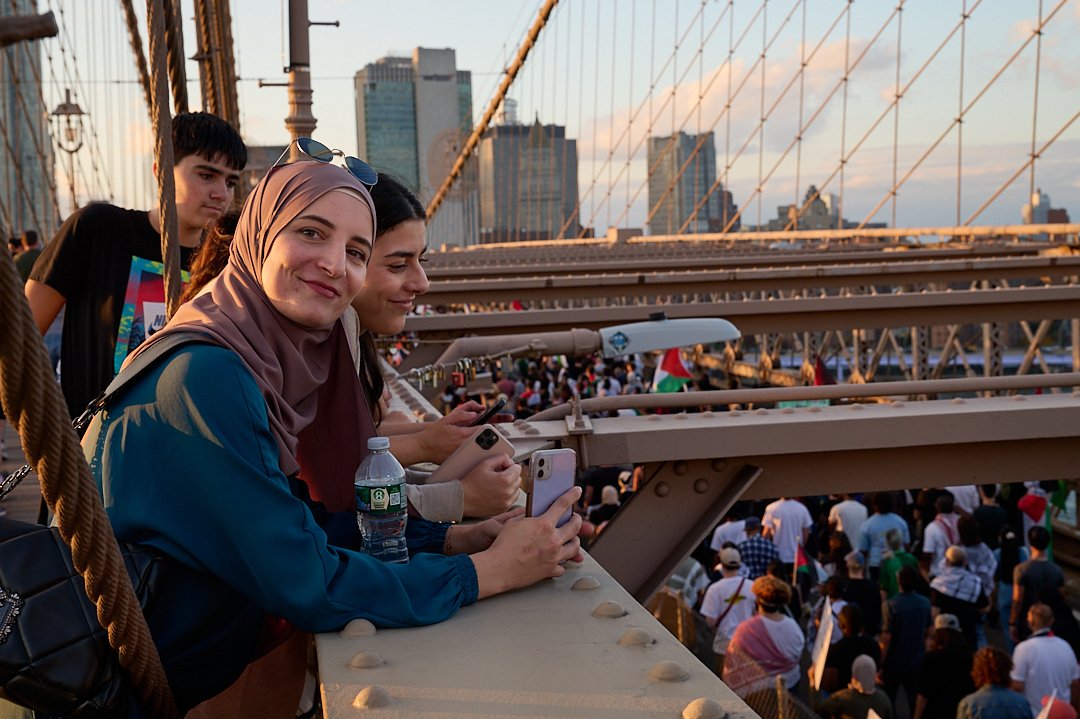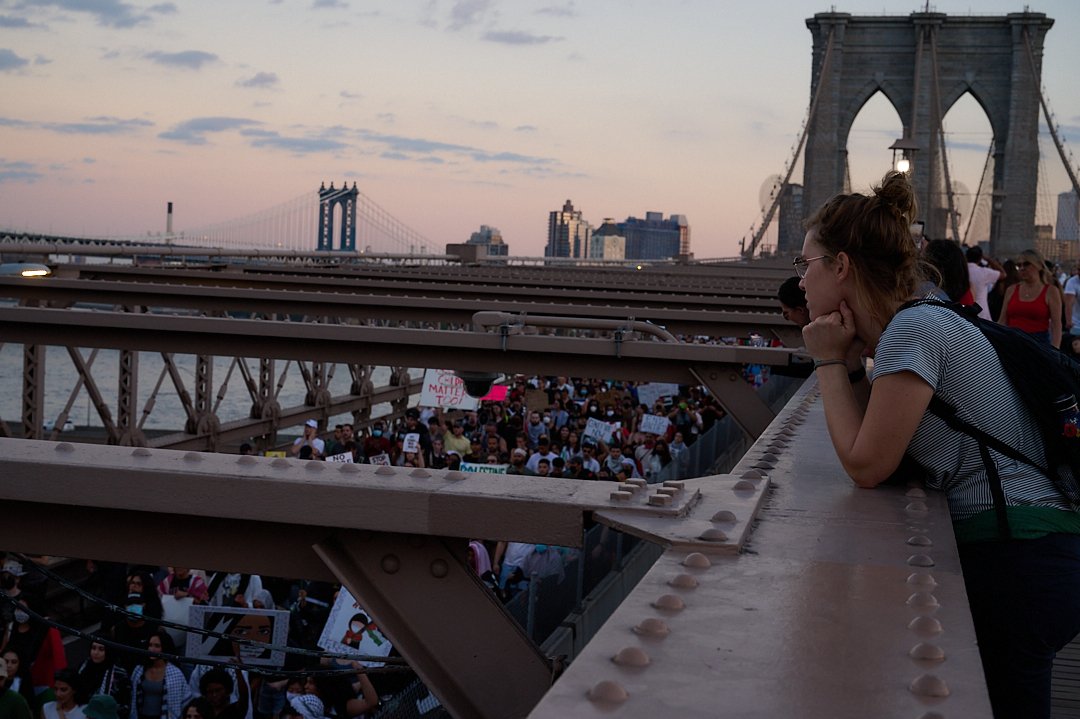Lazarus: The Importance of Historical Narrative in the Resurrection of Man
Disclaimer: The content of this essay does not constitute an endorsement of any party involved in the Israel-Palestine conflict. This particular essay was given to us by a strange character named Lazarus, a photojournalist and a "vernacular and rustic Zarathustra," who has lived long enough to see it all. And while we don't normally take submissions, we felt that his words were needed in such trying times as these.
N.B.: When the twilight approaches and age weaves its silken threads, the appetite for political theory dissipates like wisps of forgotten dreams and other questions occupy the mind of a man. Oh dear and solitary twilight, I stand here poised with you at the threshold between the living and the dead, readying myself for the solitary abyss that stares at me—the only odyssey that lingers for a seasoned soul like mine. It is you, my beloved maiden death, that has never abandoned me since I was born; yes, indeed, I am ready to part away with you dear beloved friend. And In such respect, let this be my final reflection after one last, long and dark slumber—my final message to the Sons of Man.
Through a life of chasing memories, I learned that being past, history can teach us many things about being present in it and shows man not as it should be, but as man really is. In fact, I believe that all those who become afflicted with the historical sickness and have fallen asleep know about all that is to follow, they just never get a chance to tell us about it. I have been given that chance and felt it would have been a waste not to share what I learned from my life, death, and, most importantly, my resurrection.
Lazarus: The Importance of Historical Narrative in the Ressurection of Man
It was known to the Ancient Greeks that the rule and nature of Cronus was the most cruel to mankind and the Gods. Time is like a continuous river that is constantly flowing. Every single word that I write in this essay is sinking into the past and now belongs to the past, never to be retrieved by the swiftness of the present; the mind can’t ever fully the past and is deprived of apprehending what is present—regardless of what the sophists think. It must be said that every single form of self-reflection, apprehension, or objectification of life experience through understanding can only exist in the past tense or as a historical consideration. It was through Zarathustra’s teachings that we also learned about the nature and tyranny of time when he spoke “that time doth not run backward—that is its animosity: "That which was: so is the stone which it cannot roll called” (Thus Spake Zarathustra,). However, that is not to say that the past is dead and unmovable; it is present, we are surrounded by it, and we are constantly changing it. Every cathedral, road, book, clothing, and artifact has been inherited by us from the previous generations. Thus, it is also the past who manifests itself present through the use of language, customs, and traditions. While we all remain individuals with certain mannerisms, distinctive traits, and peculiarities, we are still one human race and cannot be divorced from historical forces. Historical context is not related to a remote past, but to a present that can better explain who we are as a unique race and as individuals. Thus, historical knowledge is not just related to the Napoleons or Alexanders of the world. It is through historical thinking that we can understand an old friendship through letters, or even who we were ten years ago by reflecting on actions that we did.
History’s purpose is for human self-knowledge. As the historian R.G. Collinwood states: “knowing yourself means knowing what you can do” (The Idea of History, p. 10m). However, it is difficult to know what we can do; we don't know what we are capable of until we make an attempt. Then it follows that the only clue we have of what we can do, is what other men have done. Thus, according to Collingwood, “[t]he value of history, then, is that it teaches us what man has done and thus what man is” (The Idea of History, p. 10b). We could say that one of the greatest abilities of mankind is that we are the only animal capable of profiting from each other’s experiences. However, this is not a natural process. It needs to be inherited and apprehended by historical knowledge and our historical consciousness since “almost all the operations our mind performs are operations which we learned to perform from others who have performed them already” (The Idea of History, p. 226t). In other words, the spirit of the world opens to us because we created it.
History and the world-spirit are narratives that we created for several purposes, but one of them is for self-understanding. Every narrative has the power to close and destroy horizons, or open new ones where life can emerge and mankind can flourish. In other words, we need a horizon to have a sense of meaning and purpose to live, a path to move forward and cope with the absurdity, chance, and chaos of existence; we need to give ourselves a narrative.
History is a rational narrative because it gives the historian the ability to formulate questions or appeals based on evidence. The historian is not only concerned with the testimonies of people who were present, but with physical evidence such as journals, jewelry, pottery, photographs, and objects in general that have expressed thoughts or attitudes towards life in a particular time. Thus, it is also rational because there is a sequence of events that need to fit a narrative that tries to understand the past, and whatever stands in opposition to such a narrative, poses a threat to our understanding of the event and the present. Similar to a contemporary detective, the historian must craft a probable motive and a narrative for historical events. Hence, all historians need to preserve evidence such as journals, photos, etc, for future historians to also criticize the past and reopen a historical case on the past. And, just as in a murder trial, when new evidence shows up, the historian needs to think how does this fit the narrative and resume his inquiry if the evidence presented opens a new horizon; in other words, the past is never settled. Now, since history is such a complex topic and many books have been written about man’s obsession with the past, I will no longer delve into it, but rather, I wish to write about my love for photography and photojournalism as a historical record and preferred form of historical evidence.
Several decades ago, I discovered myself feeling aged in the midst of my youthful years—a man asleep and adrift without a visible horizon to guide me toward the sun—a gray haired young man. Nevertheless, I emerged as a paradoxical figure: a youthful soul burdened with the weight of what is called historical knowledge. Yet, possessed an indomitable will to navigate the uncertain terrain ahead and learn to forget. It was during those days, that I needed to find my purpose and come back to myself like a young Ulysses. Concluding my inaugural year as a graduate student, I found myself grappling with profound questions concerning time, memory, and experience, which kindled a deep curiosity within me. Seeking a rest from my studies, I embarked on a walk through town in search of some solitude to question who I was, and at that moment, everything changed for me... Let me explain…
My town is notoriously famous for its art and its galleries. This city reunites the most talented people in the country to exhibit life as we have never seen it before. From the depths of their selves, they push the boundaries of what humans are able to experience throughout our limited lifetimes. I therefore always visited galleries to inspire myself to see life differently. At that moment, I inadvertently found myself in a gallery expressly dedicated to photojournalism—a space with the singular mission of gathering and preserving all the monumental and critical events in human history under one roof. For the first time in my life, I encountered a profound sensation that remains elusive to both my writing and understanding even today. It was an experience beyond the reach of my prose and intellect, one that could only be felt. At that moment, I was surrounded by iconic photographs ranging from WWI to the rise of President Reagan. For once, I could see it all; I was the man on top of the world’s highest mountain with an open view into the soul of mankind; I was Nietzsche’s superhistorical man. I could see who we are as a species, all the injustice, the unnecessary and necessary suffering, the vile and evilness of mankind, as well as its virtues in the middle of chaos. Then, something happened to me internally; it was an awakening, a call to participate or construct history and not to remain only a spectator—and, it was then when I became a photojournalist. Many people don’t appreciate photojournalism, but many people don’t experience life as the superhistorical man.
Some bold action needed to occur after such an immersive experience. That moment was so ephemeral and instantaneous, and yet, it was eternal to me. A few days later, I was able to digest what I had experienced and decided to start documenting life on Earth. It was incumbent for somebody to be a witness and provide evidence of what some have called the world spirit actualizing itself. I found myself needing to provide factual, visual evidence for the historian to pass its judgment and open new horizons to promote health and prosperity to the polity. As I stated before, the past is not an unmovable past. It is always open to reinterpretation with the introduction of new evidence, all for the sake of a healthier state and healthier individuals.
History indeed belongs to the strong, but even the strongest need to rethink their past for self-understanding and to heal old wounds. Thus, like the superhistorical man who can see it all, one can find himself incapable of digesting all the injustice, arbitrariness, and absurdity of what we call history; it is a role only reserved to the strongest stomachs. Borges knew something to be true: that an excess of history or memory can be detrimental for all living beings, and excess is the enemy of the necessary. Any historical man unable to reconcile with his past would live a short life succumbing to the torment of sleeplessness, and he wouldn't be able to experience happiness again. In this instance, happiness is defined as a single and swift moment of forgetfulness that loses its grip on a man’s throat. Therefore, crafting a rational narrative that can speak to the present to promote life and action is necessary to have a healthy state. This leads me to my final topic.
Plato once suggested that what applies to the state can also be applied to the individual. In like manner, if we think of history as nothing more than a collective memory of lived experiences, we can apply the same concept to our own individual memories. In other words, we are the historians of our lives. We have the ability to rethink and reshape our past through the use of rethinking historical information—like journals and photos—with new information gathered in the present; and, we do all this to promote mental health and prosperity in our own lives. We have the ability to open the past, remove the excess, and include only what would benefit our lives and open new horizons.
Perhaps some past, daunting events cannot be erased, but we have the willpower and the responsibility to create a narrative; our personal narrative. And utter those infamous colloquial words—everything happens for a reason. We construct meaning in our lives by reflecting on monumental life events or moments of self-actualization; while keeping in mind that there is no mystical spirit, no reward, no punishment, or afterlife. It is you who is crafting a narrative to the chance and absurdity of life. To conclude, it is through historical thinking wherein lies man’s greatest power: the mind’s will and plasticity to rethink its past so it can live once more and sleep at night. We are barely catching up with Lazarus, who all along knew man’s greatest virtue–resurrection.





















